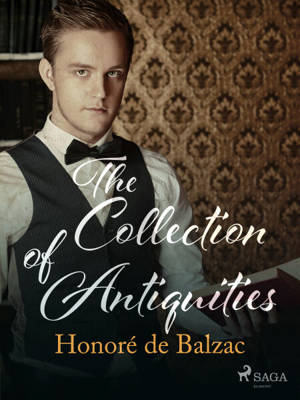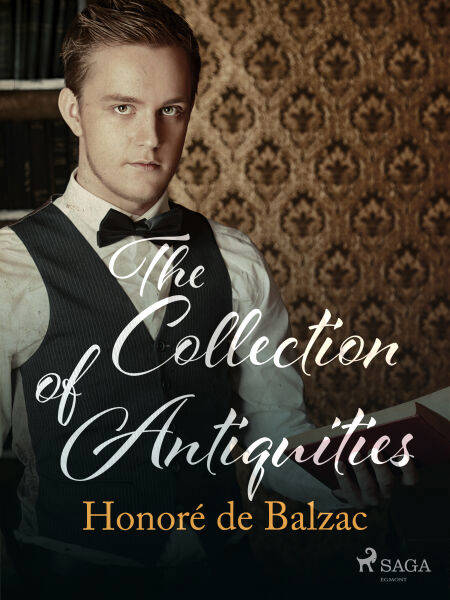
- Afhalen na 1 uur in een winkel met voorraad
- Gratis thuislevering in België vanaf € 30
- Ruim aanbod met 7 miljoen producten
- Afhalen na 1 uur in een winkel met voorraad
- Gratis thuislevering in België vanaf € 30
- Ruim aanbod met 7 miljoen producten
Omschrijving
Spoiling a child is not just about letting them have a few extra sweets. In some cases, years of doting really do spoil them.
Victurien d'Esgrignon was raised by his doting aunt and adoring father - a family high up in the aristocracy of Restoration France. As a young man, he is both intelligent and shallow: a liar and a cheat who ruins his family, their lawyer, and others drawn into his circle.
Then he meets his match - a young man with the same cold heart and eye for an opportunity. Who will triumph in this race to the bottom?
Honore de Balzac's 'The Collection of Antiquities' shines a bright light on the social and moral decline of the aristocracy in 1830s France.
Fans of 'Les Miserables' by Victor Hugo and 'A Tale of Two Cities' by Charles Dickens will love this!
Honoré de Balzac (1799-1850) was a French novelist and playwright, most famous for a sequence of novels, collectively called 'The Human Comedy'. His signature style was a warts-and-all representation of post-Napoleonic French life, rich in detail and featuring complex, unfiltered characters.
The style means Balzac is regarded as one of the pioneers of European literary realism. He is named as an influence on writers including Emile Zola, Henry James, Charles Dickens, and Gustave Flaubert.
The first novel he published under his own name was 'Les Chouans' in 1829. In 1834 he hit upon the idea of grouping his novels together to record all of society. The result, over a period of years, was 'The Human Comedy', which comprised three categories: 'Analytic Studies'; 'Philosophical Studies'; and 'Studies of Manners'.
Victurien d'Esgrignon was raised by his doting aunt and adoring father - a family high up in the aristocracy of Restoration France. As a young man, he is both intelligent and shallow: a liar and a cheat who ruins his family, their lawyer, and others drawn into his circle.
Then he meets his match - a young man with the same cold heart and eye for an opportunity. Who will triumph in this race to the bottom?
Honore de Balzac's 'The Collection of Antiquities' shines a bright light on the social and moral decline of the aristocracy in 1830s France.
Fans of 'Les Miserables' by Victor Hugo and 'A Tale of Two Cities' by Charles Dickens will love this!
Honoré de Balzac (1799-1850) was a French novelist and playwright, most famous for a sequence of novels, collectively called 'The Human Comedy'. His signature style was a warts-and-all representation of post-Napoleonic French life, rich in detail and featuring complex, unfiltered characters.
The style means Balzac is regarded as one of the pioneers of European literary realism. He is named as an influence on writers including Emile Zola, Henry James, Charles Dickens, and Gustave Flaubert.
The first novel he published under his own name was 'Les Chouans' in 1829. In 1834 he hit upon the idea of grouping his novels together to record all of society. The result, over a period of years, was 'The Human Comedy', which comprised three categories: 'Analytic Studies'; 'Philosophical Studies'; and 'Studies of Manners'.
Specificaties
Betrokkenen
- Auteur(s):
- Vertaler(s):
- Uitgeverij:
Inhoud
- Aantal bladzijden:
- 69
- Taal:
- Engels
Eigenschappen
- Productcode (EAN):
- 9788726668278
- Verschijningsdatum:
- 3/10/2022
- Uitvoering:
- E-book
- Beveiligd met:
- Digital watermarking
- Formaat:
- ePub

Alleen bij Standaard Boekhandel
+ 1 punten op je klantenkaart van Standaard Boekhandel
Beoordelingen
We publiceren alleen reviews die voldoen aan de voorwaarden voor reviews. Bekijk onze voorwaarden voor reviews.










